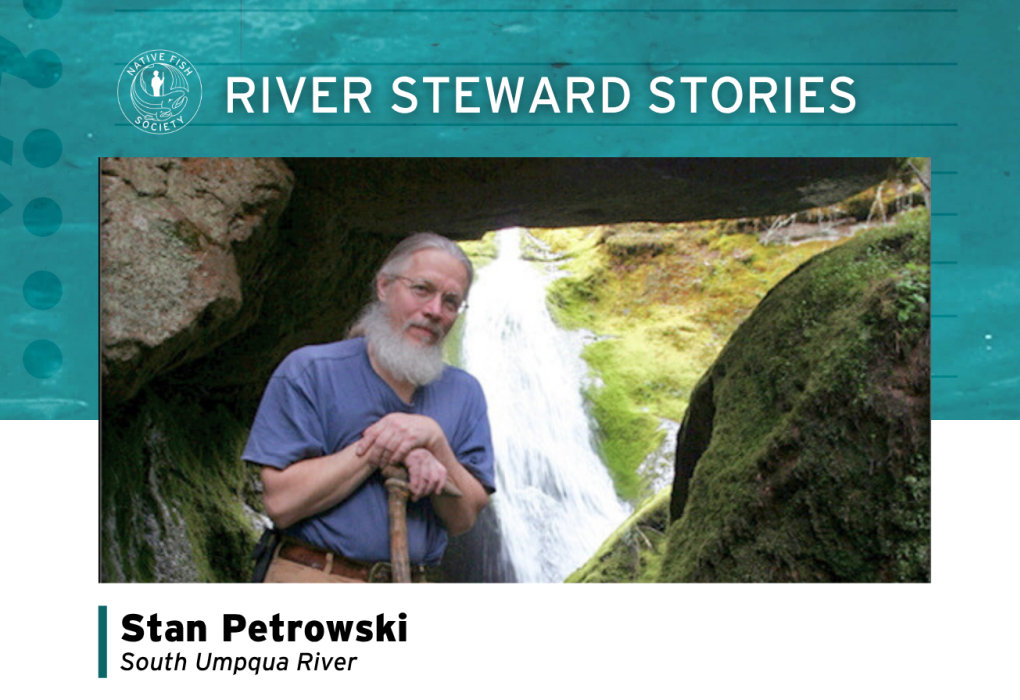River Steward Stories: Stanley Petrowski
River Steward Stories is a new monthly series by Native Fish Society, where we get to know the River Stewards at the core of Native Fish Society’s conservation work building groundswell of public support for abundant wild fish, free-flowing rivers, and thriving Northwest communities.
Each month, we’ll dive deep and introduce you to a River Steward from around the Northwest, so you can learn more about what drives them, the rivers they serve, and how to connect with them.
With no further adieu, meet South Umpqua River Steward Stan Petrowski!
~~~~~~~~~~~~~~~~~~~~
Meet Stan Petrowski: NFS South Umpqua River Steward
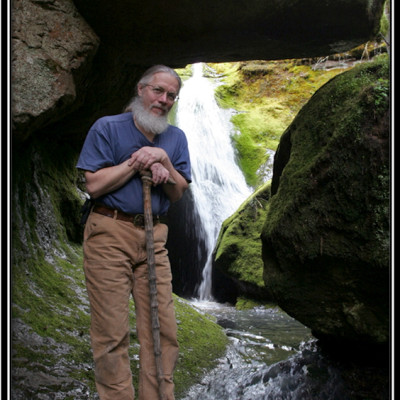
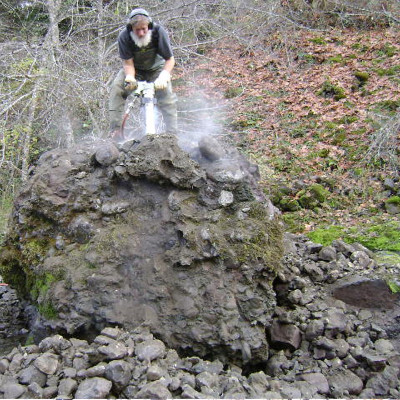
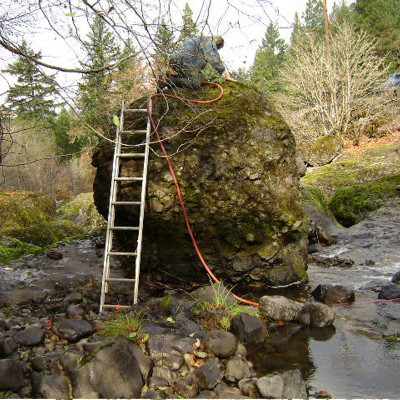
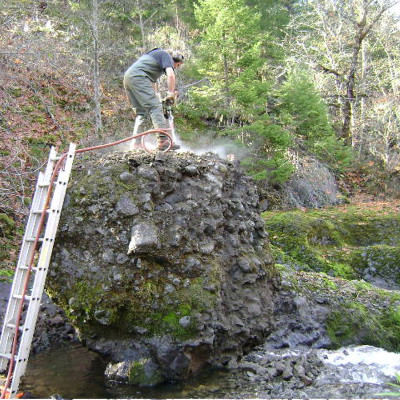
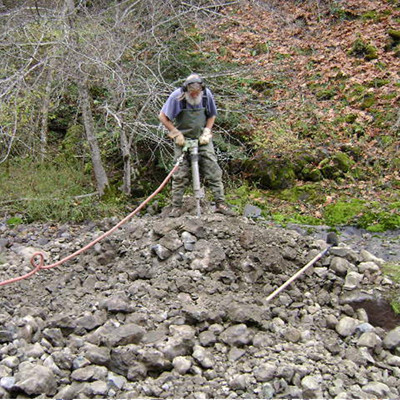
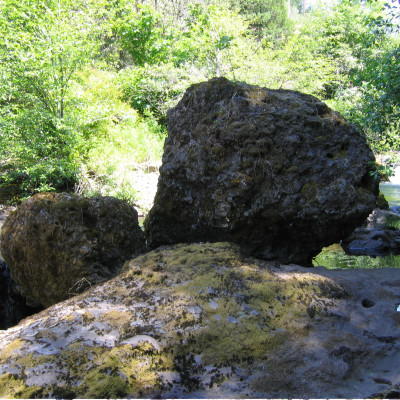
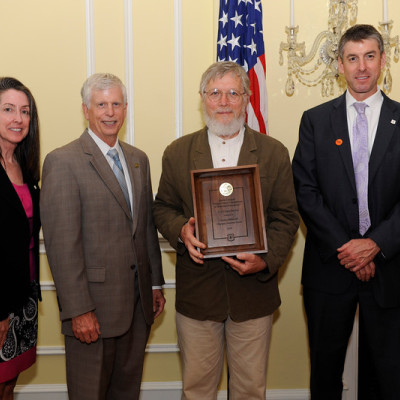
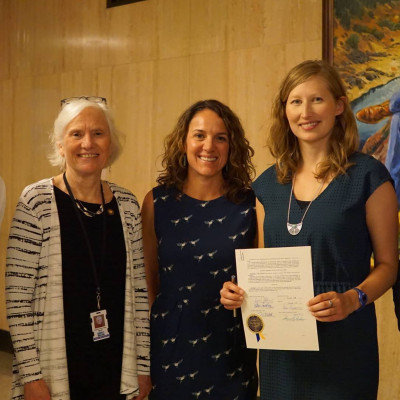
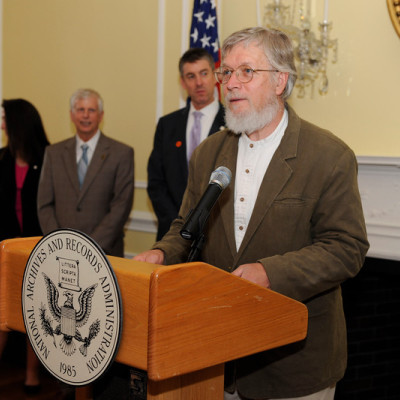
NFS (Bold) Describe your personal history/relationship with the South Umpqua River?
S.P. (italics): Moved to the head waters area in 1991. I became aware of the degraded habitat condition of the river basin soon after. Got intimately involved in the restoration of the river ecosystem in my subwatershed in 2004. Established a 501C3 non-profit (South Umpqua Rural Community Partnership - surcp.org) for the express purpose of facilitating aquatic habitat restoration work. Since then, I have helped implement well over 14 million dollars of habitat restoration projects in the South Umpqua basin headwaters. Simultaneously, I was on the Board of Directors of 5 NGOs that were tangentially aligned with my habitat restoration goals, both within and beyond the South Umpqua basin.
What does the Native Fish Society represent to you?
In 2009, I began an initiative to restore beavers in ecology in watersheds in the basin, the State, and internationally. At the time, beavers were designated nuisance predators in Oregon, the Beaver State. In that same year, I was recruited by Peter Tronquet, who was at the time the River Steward of both the North and South Umpqua forks of the Umpqua river system. From the onset, NFS became a stalwart supporter in this effort. Our first State of the Beaver conference was co-sponsored by NFS, and the organization has substantially assisted in every initiative we have embarked on since then until now. I've seen many changes in the organization since then. Some have been profoundly successful and would not have been without the Native Fish Society.
By taking personal ownership as a person of place, river stewards become the eyes, ears, and voice for the protection, restoration, and revitalization of our river systems.
Why do Rivers need Stewards?
Rivers are part of the Public Trust. We often conceive of the responsibility for this trust to be in the hands of agencies with a mandate to protect and manage our rivers. The truth is that the true value of our rivers has been maligned since the onset of the Industrial Revolution. Their ecological integrity is degraded. The sociopolitical elements that were the cause of this condition, whether intentionally or not, are still hard at work undermining this backbone of the underpinnings of life support for this world. This is where river stewards come in. By taking personal ownership as a person of place, river stewards become the eyes, ears, and voice for the protection, restoration, and revitalization of our river systems. These are significant components of the recovery of the keystone species that are our native fish runs.
What is one (or more) thing(s) you find unique, that you find special, to the South Umpqua River? Describe what the South Umpqua River means to you.
While learning all I could about the river, I assessed every aspect of the ecosystem, beginning with the historical and current status of the native fish runs. The South Umpqua basin is the nexus of three main geological domains. Each is spectacularly unique and influential on the river system and its denizens. The Coast Range, the Cascade Range, and the Klamath Zone converge on this watershed. Each of these provinces have unique attributes physically, chemically, and biologically. Each of which has a direct impact on its native fish. Each province supports unique vegetation and species communities. The fish runs are a reflection of this diversity. Current science indicates that the native fish runs are unique to both the coastal and southern Oregon species. Because of the diverse geological and biological convergence of coastal and SONC ESUs, I have always regarded this watershed as a “Conservation Seeding Reserve” for its adjacent ecosystems throughout geologic time. This is a unique virtue of the area. It acts like an ecosystem buffer zone for each of the provinces that are converged and adjacent to the river.
What keeps you motivated to continue your work as a River Steward on the South Umpqua River?
As long as I have lived here, I have always felt that State and Federal agencies regarded the South Umpqua basin as a sacrifice zone. An area where natural resources can be extracted without social consequences. Funds for recovery and recreation were consistently poured into the two other main basins of the river system. For this reason, as a river steward, I coined the phrase, “There are no sacrifice rivers.” The historic record of the native fish runs in the South Umpqua River indicates an image of overwhelming opulence of native fish. Research done by Federal agencies in the 1900s declared the system “fully seeded” with native fish. Now, native fish runs are decimated. The Summer Steelhead run is now extinct. The Spring Chinook run has been reduced to a small fraction of its former state leaving the run in a genetic bottleneck and on the verge of extirpation. The Searun Cutthroat trout and the Umpqua Chub populations are decimated. I refuse to let them die on my watch. As a River Steward, I want to leave behind me a legacy of life for generations to come.
Native fish are keystone species that support the entire web of life in our world.
In general, what are your conservation priorities for the South Umpqua River?
Protection, restoration, and recovery of the original native fish run status. Native fish are keystone species that support the entire web of life in our world. They are the consummate priority of my overall agenda.
More specifically, what's working on the South Umpqua River that you're looking to continue, or encourage growth in?
Our restoration initiatives have become a great tool for landowners to see with their own eyes the benefits of fish run recovery, aquatic habitat improvement, and land stabilization in stream and river riparian zones. You can see and feel the benefit of this type of work firsthand.
Specifically, what are the premier challenges facing the South Umpqua River that you're interested in working to rectify?
Where does one begin? Peak river flows and summer low flows are out of control. In spite of the recently signed “Private Forest Accord” the impact of archaic forest management methods are still causing major ecological disruptions, leading to species extinction. Likewise, farmland and roads adjacent to the river system are polluting the river with chemical sprays and fertilizers. More importantly, the irrigation systems are outdated and wasteful of our precious water supply.
The Umpqua basin at large is rated 303D listed for high temperatures by the EPA and the Oregon Dept. of Environmental Quality. High temperatures kill juvenile salmonids.
Every year, by the Oregon Dept. of Health, the South Umpqua River is listed as a health hazard as a result of the summer blue-green algae bloom (Cyanobacteria). This is a direct result of summer low flows and agricultural pollutants.
Describe what you see as the benefits to your community with a healthy, abundant, and resilient South Umpqua River.
With the help of the Native Fish Society, we have been able to protect over 23,000 river and stream miles of essential salmon habitat in the State of Oregon from suction dredge mining. (The Suction Dredge Reform Bill). That initiative began right here in the South Umpqua basin and flourished throughout the State because of Native Fish Society support. That project took seven years to complete. The support has been unwavering.
Likewise, the status of nature’s primary ecosystem engineer, the North American beaver, has been changed from a “nuisance predator” to “a keystone species” protected on public lands. That effort took over two decades. The Native Fish Society was at our side all the way and has been a sponsor of our State of the Beaver conferences.
Our current project relates to the petitioning for the Coastal and SONC Chinook runs to be protected under the Federal Endangered Species Act. NFS has provided the encouragement and strength we need for this work to come to fruition.
All of these efforts and more encourage healthier water quality. Bright water equals bright fish.
What's the very next thing you'd encourage community members to tune in to, or to be aware of, regarding the South Umpqua River?
The campaign for Chinook listing and the protection of the Spring Chinook run specifically.
It won't be long, and the ODFW Coastal Management Plan will be revisited. Input from river stewards is absolutely essential. We should begin preparing for that now.
Our biennial State of the Beaver Conference will take place November 18, 19, 20 at the Umpqua Indian Tribal Resort. You should attend if you can. It is attended by people from all over the State, the Country, and Europe. I'm hoping the Native Fish Society will continue its long-standing tradition of sponsoring this event.
~~~~~~~~~~~~~~~~~~~~
River Steward Stories is a monthly series, so stay tuned for more inspiring conversations with the volunteers restoring and protecting their homewaters across the Pacific Northwest.
Follow along to learn about activities and opportunities to engage with the Portland Chapter of the Native Fish Society on Instagram at @nfs_pdx
If you have questions about the River Steward program, or Native Fish Society’s conservation campaign efforts in Oregon, contact Northern Oregon Coordinator Daniel Ritz at Daniel@NativeFishSociety.org or Southern Oregon Coordinator Charles Gehr at charles@nativefishsociety.org.
